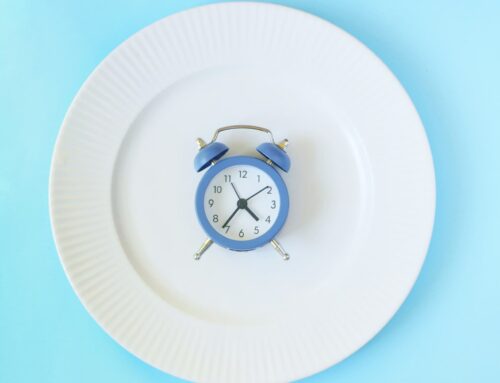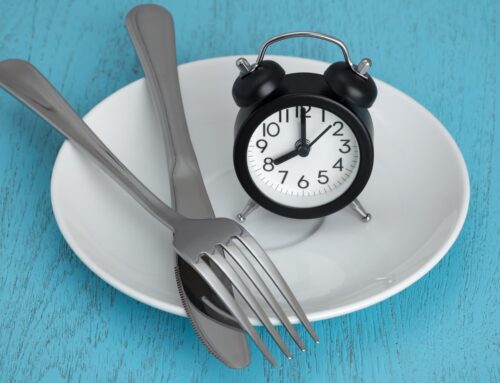When I talk about testosterone, a lot of my clients assume the topic only applies to men. But that’s not true! Testosterone is just as important for women, and it often flies under the radar in conversations about balancing women’s hormones.
Women only have about 5% as much testosterone as men do—we have mostly estrogen and progesterone—but testosterone still plays a huge role in our health.
A lot of women don’t realize they’re struggling with low testosterone. It can lead to a variety of symptoms, including depression, weight gain, muscle loss, and low libido.
The good news is that there’s a lot you can do to get your testosterone levels into the ideal range. Here’s a look at why testosterone is so important for women’s health, as well as what you can do to increase your testosterone levels at any age.
What Is Testosterone (and Why Does It Matter?)
Testosterone is one of the body’s main sex hormones, along with estrogen and progesterone. Men produce a lot of testosterone, while women make much less of it, but for both sexes, testosterone is very important. It influences your mood, weight, muscles, and libido, and when it’s low, it can be devastating.
A lot of women struggle with low testosterone. One of the reasons is that we don’t make it the way men do. We produce about 25% of testosterone in our ovaries, another 25% in our adrenal glands, and about 50% in peripheral tissue.
That matters a lot, because if your peripheral tissues are struggling—say, from general inflammation—your testosterone levels can drop.
Here’s what the research says about symptoms of low testosterone.
Testosterone and Depression/Mood
Testosterone plays a significant role in regulating mood. Low testosterone can lead to depression—and research suggests that restoring your testosterone levels can reverse the problem.
- On average, women with depression have lower testosterone than women without depression.
- In women with treatment-resistant depression, low-dose testosterone relieved depressive symptoms, with 67% of women showing significant symptom relief and 33% showing total remission after 8 weeks.
- Women who increased their testosterone reported improved mood, life satisfaction, and overall well-being. Testosterone also improved their sex lives.
- Women who had their ovaries removed were significantly more likely to experience depression and mood disturbances, both of which were reversed when the women took testosterone.
Testosterone and Libido
One of testosterone’s biggest roles is in regulating libido—and as a result, decreased sex drive is one of the most common complaints in women with low testosterone, especially during and after menopause.
- A year-long, double-blind, placebo-controlled study of 814 postmenopausal women found that increasing testosterone levels increased sexual desire. Women in the testosterone group also reported more frequent sex, more satisfying sex, and reduced feelings of distress related to their sex lives.
- Increasing testosterone also improved self-rated sexual function in young women in their 30s with low libido.
- A 2020 meta-analysis of 8480 women concluded that increasing testosterone improved women’s orgasms and increased arousal, sexual pleasure, and libido, and decreased sexual anxiety and distress. The review included women of all ages.
If you’ve been struggling with low sex drive, testosterone may be the culprit. Increasing it can have an incredibly positive effect on your sex life, in terms of both sexual desire and sexual satisfaction.
Testosterone and Brain Function
Testosterone is also essential for good brain function, especially when it comes to learning and memory. Here’s a look at what the research says:
- Testosterone is an antioxidant, and studies show that testosterone replacement therapy increases your brain cells’ resistance to stress.
- Postmenopausal women taking estrogen showed significant improvements in memory and verbal learning after also adding testosterone. Adding testosterone also improved concentration, allowing the women to focus for longer.
- Testosterone is a vasodilator, which means it widens your blood vessels, improving blood flow and decreasing blood pressure. In a study of 48 postmenopausal women, testosterone therapy increased blood flow to the brain, which, combined with testosterone’s neuroprotective effects, may explain why optimal testosterone levels improve cognition.
Testosterone and Weight Loss
Testosterone is also important for weight loss. A 2015 review found that keeping testosterone in the optimal range led to gradual, sustained fat loss and muscle gain in women who exercised regularly.
The same review found that testosterone is important for heart health, and that keeping it in the ideal range can lower blood pressure and improve markers of cardiovascular fitness.
3 Ways to Increase Testosterone Naturally
If you think you may have low testosterone, I recommend getting a Dutch Test. It’s a comprehensive hormone panel that can help you figure out exactly what’s going on with your sex hormones.
And if you discover that you do have low testosterone, don’t worry! There’s plenty you can do to bring it back into balance. Here are three of my favorite strategies for increasing testosterone naturally.
Intermittent Fasting
Fasting is an amazing tool to bring your sex hormones into balance, including testosterone. It decreases inflammation in peripheral tissue—which, remember, is where we make 50% of our testosterone—and also supports adrenal health, which is where we make another 25% of our testosterone.
And contrary to popular belief, intermittent fasting is amazing for women! You just have to do it right. If you’re new to fasting, I recommend my free beginner’s guide to fasting. It tells you exactly what to do to lose weight, balance your hormones, and feel better than you have in years, and it’s totally free.
Deeper Sleep
Sleep is one of the most important times for hormone production. You make a lot of your estrogen, progesterone, and testosterone during the deepest stages of sleep—and if you aren’t reaching those deep stages, your hormones can fall out of balance.
If you’re struggling to get a good night’s sleep, check out my 7 simple sleep hacks. They’ll help you get deep, restorative sleep, starting tonight.
Vitamin D
I talk about vitamin D a lot. It’s essential for more than a thousand different bodily processes, including sex hormone production. It’s also important for weight loss, brain function, mood, and more.
The trouble is that almost all of us are deficient in vitamin D. Your body synthesizes vitamin D in response to sun exposure—and if you spend most of your day indoors, there’s a good chance you aren’t making enough vitamin D.
Fortunately, vitamin D supplements are widely available and fairly inexpensive. A lot of women start with a dose of 2500 IUs a day. You can also increase vitamin D by spending more time in the sun with your skin exposed—just make sure you don’t get burned!
Final Thoughts
We don’t hear about it enough, but testosterone is essential for women’s health. You need testosterone for everything from mood to brain function to sex drive, and low testosterone is a hidden issue for a lot of women, especially during and after menopause.
If you think you have low testosterone, don’t worry! Try the strategies I talk about above—and if you want to eliminate any guesswork, consider getting a Dutch Test hormone panel to see where you stand. With the right lifestyle changes, you can bring your hormones into balance. You’ll be amazed by how good you feel.









Leave A Comment